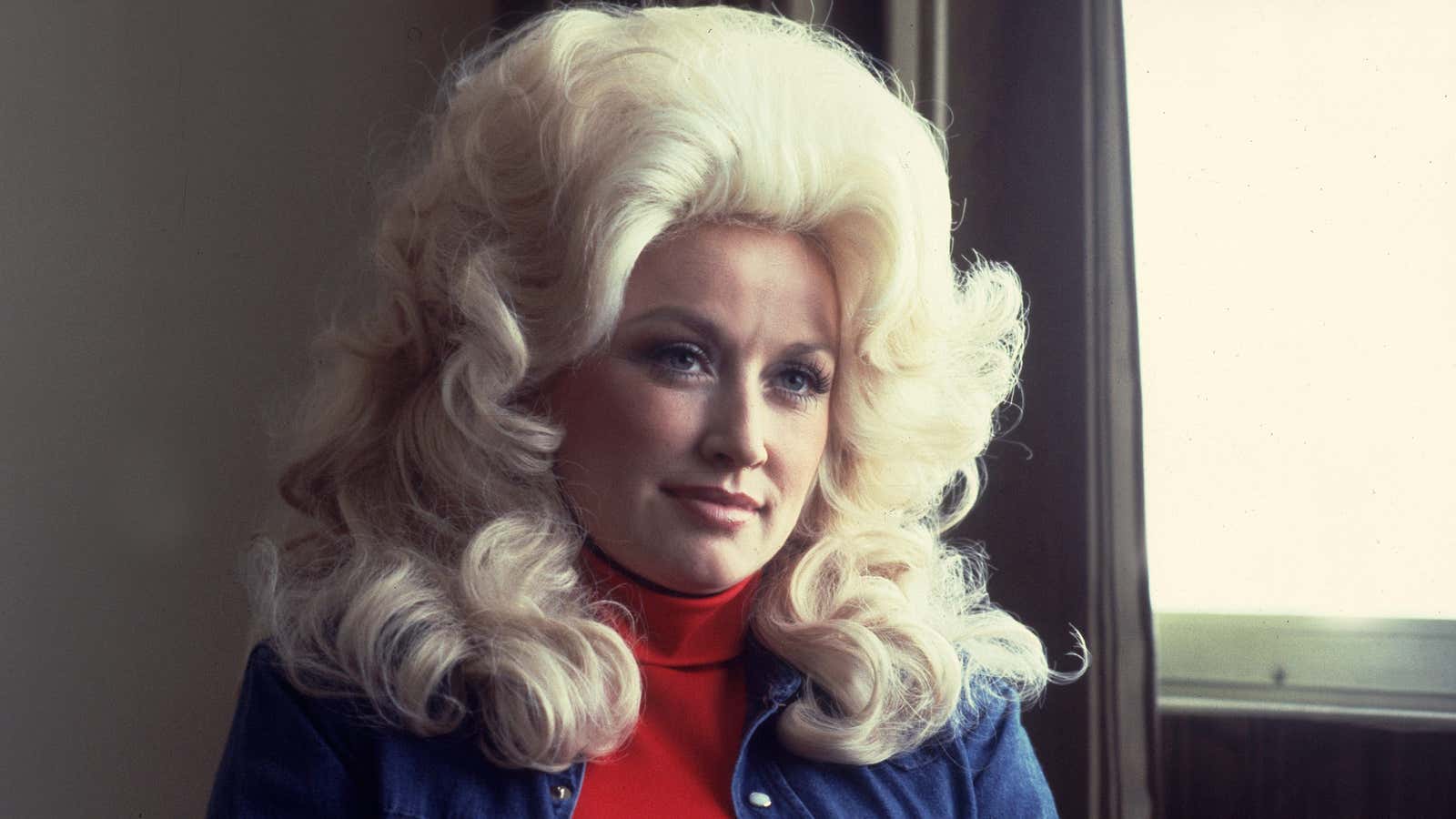Quitting a job you love can be heartbreaking.
It’s hardest if the person on the receiving end of your news has been a mentor and friend. Here’s someone who took a chance on you, perhaps, offered you an ear in tough times, and pointed you in the direction that has ultimately led to your next move. Now, for your individual story to advance, your shared one has to end. How do say that in a way that communicates all of your gratitude, without weakening your resolve to move on?
If you’re feeling creative, you could pull a Dolly Parton. That is, you could use your craft to get your point across, and turn your resignation letter into a kind of tribute, the way Parton did when she wrote the ballad that would go on to become one of modern music’s biggest hits, “I Will Always Love You.” That song, as we learn in both the recent Ken Burns documentary Country Music and the excellent new podcast Dolly Parton’s America, hosted by WNYC public radio’s Jad Abumrad of Radiolab fame, was in fact a letter of resignation.
To be sure, this is only a surprise for new arrivals to “the Dollyverse.” As Abumrad acknowledges on the second episode of the podcast (titled “I Will Always Leave You”), Parton’s fans know the tale well. The country singer wrote her departure memo in 1973, as a message to her boss Porter Wagoner, host of the eponymous TV show that first gave Parton a mass audience seven years prior, when she was a shy 21-year-old from rural Tennessee.
Appearing on The Porter Wagoner Show was Parton’s big break. But, after several years of working together, Wagoner and Parton’s relationship became acrimonious. Parton, whose star was rising, felt stifled by Wagoner’s terms. She first tried to bargain with her boss, suggesting she could stay and work for him if she could also make her own records, perform solo, and act independently. “I’m not trying to take anything from you or me,” she recalls telling him, as she talks to Abumrad about her and Wagoner’s complicated relationship. With some cooperation, they could both gain from her having more freedom as an artist. Wagoner, however, would not budge.
In the podcast interview, one of Parton’s comments captures the tension between an employer and a star employee about to flee: “He said, ‘This is my damn show.’ And I said, ‘I know; this my damn life,’” she recalls.
Finally one day she went into Wagoner’s office and asked him to sit down and listen to her latest song. She began:
If I should stay, I would only be in your way
So I’ll go, but I know
I’ll think of you every step of the way.
When she finished the song, she remembers, “[h]e was sitting in the chair, and he started crying and then he said ‘Well, that’s the best song you ever wrote.’ I said, ‘Well, you inspired it.’”
“I Will Always Love You” rose to the top spot on the Billboard Hot Country Songs chart in the 1970s and again in the 1980s, when Parton re-recorded it for the movie The Best Little Whorehouse in Texas. Then came Whitney Houston’s blockbuster rendition, recorded for the soundtrack to The Bodyguard, in 1992. Her soulful, almost operatic take on the song remains an epic hit for the ages. For years, it was the top-selling single by a female artist. “I mean look what a grand song she made out of that simple, heartfelt, you know, song… it was just amazing,” Parton said in the wake of Houston’s death in 2012.
There’s much to unpack in the tune’s backstory, as we learn in the Burns documentary and on the podcast, both of which only briefly touch on rumors about a love affair between Parton and Wagoner, who were both married when they worked together.
More significantly, the song speaks to the times. Parton first arrived on Wagoner’s show as the “pretty little lady,” as he called her, to essentially decorate the set. Her musical letter years later symbolizes a woman asserting herself, having come to the conclusion that a professional relationship that was no longer serving her was no longer what she needed. It was a bold move in 1973, but in keeping with the burgeoning feminist spirit of the era.
Wagoner had been Parton’s champion in her earliest days; he insisted that the singer upgrade to a stronger record label, recorded duets with her until audiences warmed up to the new performer on his show, and taught her how to improve as a singer by holding post mortems after every taped performance. Still, when her popularity began to explode—the podcast zeroes in on her recording of “Mule Skinner Blues” in 1970 as a key turning point—Wagoner felt threatened. He acted out by becoming controlling and punitive.
It may be part of Parton’s genius that she’s able to be generous and empathetic in her assessment of Wagoner’s response to her success, calling his fear of losing power “natural,” as she told Abumrad. “He wasn’t expecting me to be all that I was,” she says. “I was a serious writer; he didn’t know that. I was a serious entertainer; he didn’t know that.”
But he would know soon. The same day she wrote “I Will Always Love You,” as the podcast notes and as ABC News host Robin Roberts recounts on the network’s recent special about the songwriter, Parton also wrote another of her most memorable songs of the era, “Jolene.”
